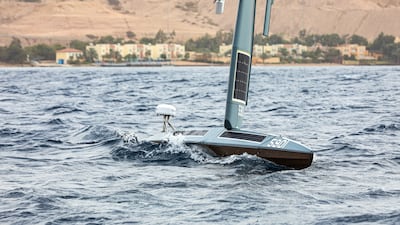The US and GCC states held a working group meeting on Wednesday to discuss the establishment of an integrated defence system to counter air, missile and maritime threats.
The meeting, which came a few hours before a drone attack on an oil refinery in Saudi Arabia, was held at the group's headquarters in Riyadh.
Participants reaffirmed their long-standing defence partnership and their shared commitment to regional security under the GCC-US Strategic Partnership.
“The United States and GCC member states stressed the importance of strengthening the ability of the GCC countries to collectively address these threats,” US Department of Defence spokeswoman Lt Gen Cindi King said.
“They developed a common vision for deterring the most pressing threats in the region — from air, missile, and maritime threats.”
All the participants reaffirmed their commitment to the November 2021 US-GCC statement condemning Iran's “malign” activity in the region, including the threat of ballistic and cruise missiles, its support for and arming of proxy militias and its use of unmanned aircraft and drones.
The meeting focused on air and sea threats, the Defence Department said. Participants agreed on the need to build integrated defence initiatives to counter threats, as well as undertake joint training.
The aim is “to prevent Iran from holding the region at risk through its proliferation and direct use of advanced ballistic missiles, cruise missiles, maritime weapons, and unmanned aircraft systems, which pose a clear threat to regional security and stability”, Lt Gen King said.
The GCC states also briefed the US on efforts to improve joint defence co-operation.
The meeting came hours before a drone attack on an oil refinery near Riyadh. Saudi officials said that petroleum supplies will be unaffected by the attack.
Although officials have yet to point the finger, Houthi rebels in Yemen have been launching near-daily drone and missile attacks on the kingdom.
Most attacks are thwarted by Saudi air defences and F-16 aircraft. However, civilians have been wounded and killed in some instances.
Last month, the US launched a pilot project to test unmanned boats in a bit to boost maritime security through better monitoring and surveillance.
The meeting of the Working Groups on Integrated Air and Missile Defence and Maritime Security follows several US-Gulf calls in recent days over the rising price of oil after the US banned the import of Russian hydrocarbons.
Sheikh Abdullah bin Zayed, UAE Minister of Foreign Affairs and International Co-operation, spoke with Antony Blinken, US Secretary of State, over the phone this week about the Ukraine crisis.
US ties with Saudi Arabia under the Biden administration have been less positive than they have been under previous administrations.
The UAE's ambassador to Washington, Yousef Al Otaiba, revealed that the Emirati-US relationship was going through a “stress test” but said he was “confident that we will get out of it and get to a better place.”



